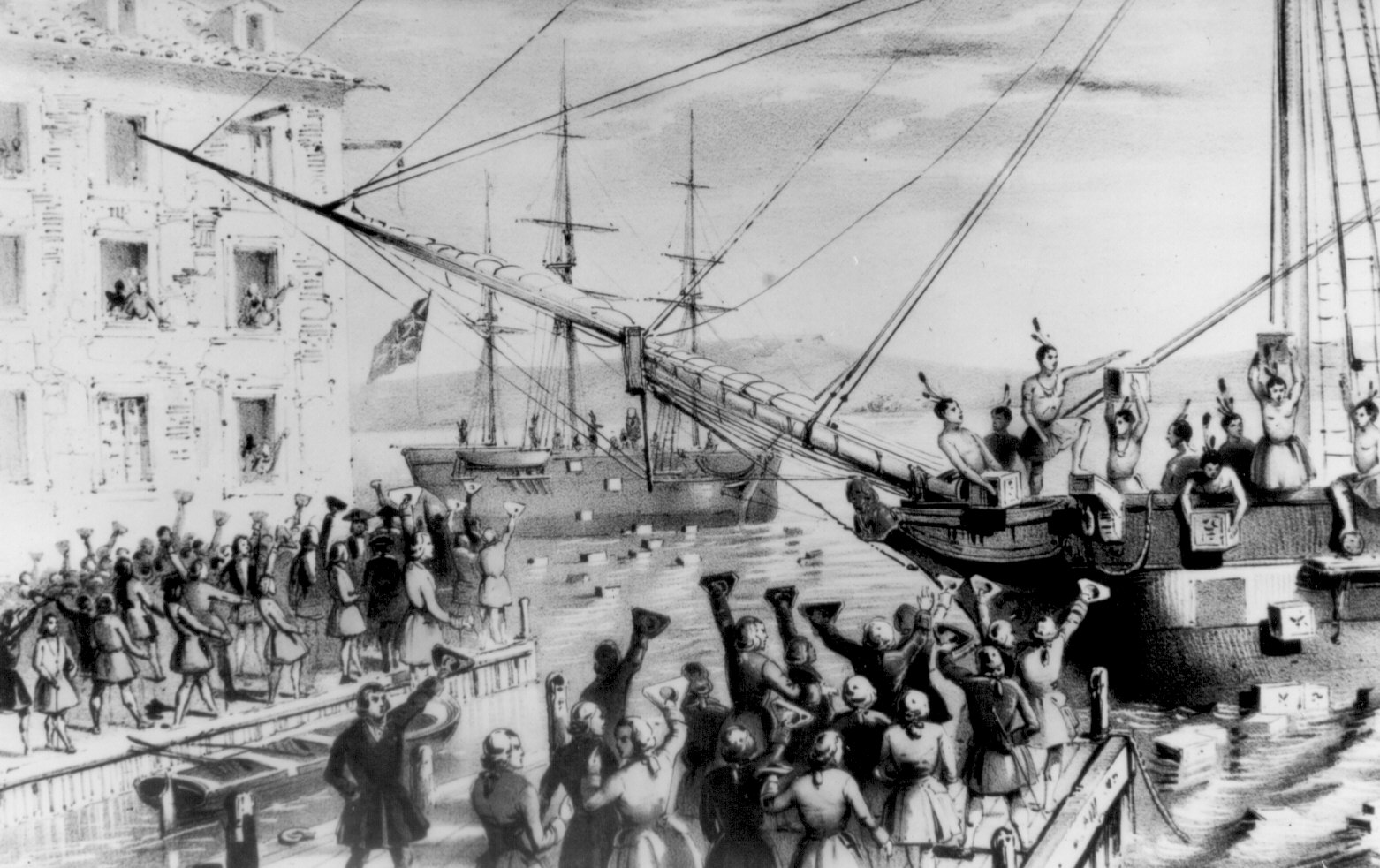Published December 16, 2010

Lithograph by Sarony & Major, 1846
On Dec. 16, 1773, Massachusetts revolted. Colonists disguised as Native Americans and steeped in British resentment destroyed three shiploads of tea by tossing it into Boston Harbor. From the Boston Tea Party Ships & Museum:
To fully understand the resentment of the colonies to Great Britain and King George III, one must understand that this was not the first time that the colonists were treated unfairly. In previous years, the 13 colonies saw a number of commercial tariffs including the Sugar Act of 1764, which taxed sugar, coffee, and wine, the Stamp Act of 1765, which put a tax on all printed matter, such as newspapers and playing cards, and the Townshend Acts of 1767 which placed taxes on items like glass, paints, paper, and tea. The Tea Act of 1773 was the last straw.
On Jan. 19, 2010, Massachusetts revolted again — sending Republican Sen. Scott Brown to Washington and catapulting the libertarian Tea Party movement into the national spotlight.
Unfortunately for the museum, they field confused phone calls about the modern-day Tea Party. NPR’s Linton Weeks, quoting museum spokesman Shawn Ford:
Today’s Tea Party, Ford says, “has nothing to do with us. When I do get calls about the Tea Party movement, it is a simple misunderstanding.”
“The similarities are illuminating,” Fox News reports today. But the two Tea Parties are not the same.
“The current movement deals with big government and excess taxes, much like the colonials did, but … the colonials truly had no representation in the legislature that was instituting their taxes,” high-school history teacher Kathy Laughlin told NPR. “The present movement’s goal is to unseat incumbents and elect ultra-conservative members to congress.”
More from NPR: